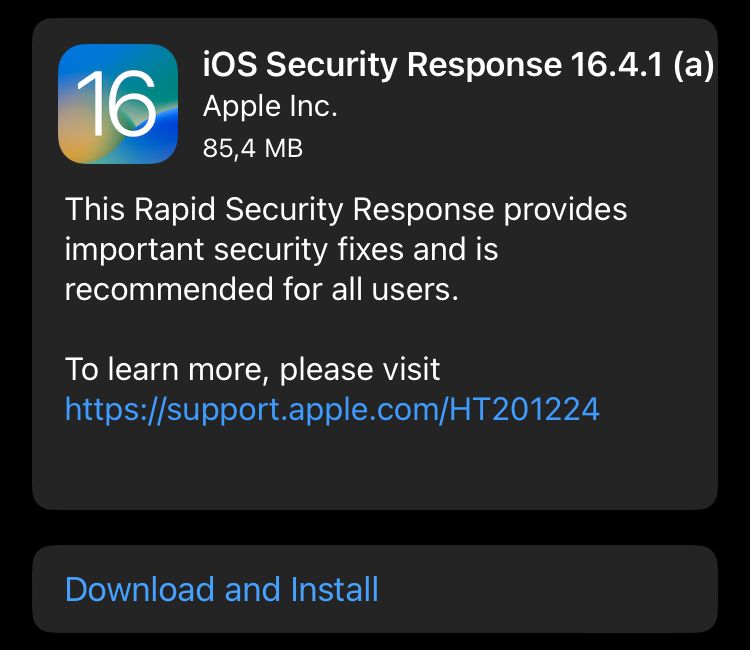
Apple this week is rolling out its first Rapid Security Response updates designed to swiftly patch iPhones and Macs against newly found security holes that hackers might be already exploiting.
Beginning with iOS 16.4.1, iPadOS 16.4.1 and macOS 13.3.1, Apple customers can now deploy the latest security fixes for their products faster and more easily.
“Rapid Security Responses are a new type of software release for iPhone, iPad, and Mac,” says a support article
on Apple’s website.
“They deliver important security improvements between software updates — for example, improvements to the Safari web browser, the WebKit framework stack, or other critical system libraries. They may also be used to mitigate some security issues more quickly, such as issues that might have been exploited or reported to exist ‘in the wild.’”
By default, iPhones, iPads and Macs allow Rapid Security Responses to be applied automatically.
If you’re unsure whether the setting is toggled on for your device, or if you turn off the feature and want to toggle it on again:
- On iOS (iPhone or iPad): Visit Settings -> General -> Software Update -> Automatic Updates and toggle “Security Responses & System Files“
- On macOS: Choose the Apple (logo) menu in the top left-hand corner of your desktop -> System Settings -> General -> Software Update -> Show Details (next to Automatic Updates) -> toggle “Install Security Responses and system files“
Rapid Security Response likely targets the growing wave of spyware exploiting zero-day vulnerabilities in Apple platforms.
Regardless of your hardware or OS vendor, Bitdefender strongly recommends you always apply the latest software patches to fend off potential attacks.
As spyware actors have been systematically targeting Apple devices in recent years, users will want to consider deploying a dedicated security solution as well.